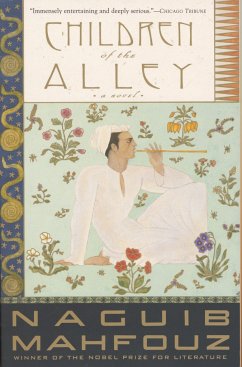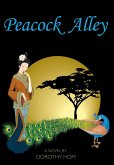In one of the most important novels of his long and illustrious career, Nobel Prize winner Naguib Mahfouz tells the story of a delightful Egyptian family, but also reveals a second, hidden, and daring narrative: the spiritual history of mankind. "An ambitious fable that attempts to embrace within it pages not merely the world of the Middle East but that of the world itself".--The Washington Post Book World.
The tumultuous alley of this rich and intricate novel (first published in Arabic in 1959) is inhabited by a delightful Egyptian family, but is also the setting for a second, hidden, and more daring narrative: the spiritual history of humankind. The men and women of a modern Cairo neighborood unwittingly reenact the lives of their holy ancestors: from the feudal lord who disowns one son for diabolical pride and puts another to the test, to the savior of a succeeding generation who frees his people from bondage. This powerful novel confirms again the richness and variety of Mahfouz's storytelling and his status as "the single most important writer in modern Arabic literature" (Newsweek).
The tumultuous alley of this rich and intricate novel (first published in Arabic in 1959) is inhabited by a delightful Egyptian family, but is also the setting for a second, hidden, and more daring narrative: the spiritual history of humankind. The men and women of a modern Cairo neighborood unwittingly reenact the lives of their holy ancestors: from the feudal lord who disowns one son for diabolical pride and puts another to the test, to the savior of a succeeding generation who frees his people from bondage. This powerful novel confirms again the richness and variety of Mahfouz's storytelling and his status as "the single most important writer in modern Arabic literature" (Newsweek).








